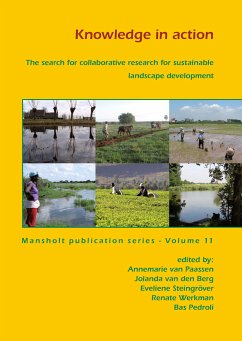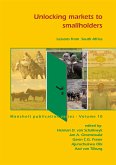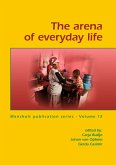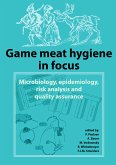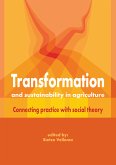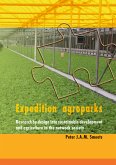Wageningen Univerisity and Research Centre is known for its practical and societally relevant research in spatial development. Stakeholders currently put much emphasis on participatory processes in landscape planning procedures. This poses a special challenge for research. What role does research play in our present world characterised by complexity, competing claims and development needs, and an increased concern for climate change and environmental impact? In the book 'Knowledge in Action' we explore different types of transdisciplinary research that scientists engage in. Depending on the societal context and the interests of local citizens, researchers apply different research approaches to optimally incorporate the various points of view in their research and promote processes enhancing dialogue and shared results.
In the book authors present their research experiences: their theoretical inspiration, the research methodology applied to consult, share and collaborate with societal actors in order to create options for change. The book includes several striking examples from The Netherlands (both successful and less effective), and also innovative examples from communities in Africa and Asia. The authors reflect on opportunities, problems and dilemma's they had to deal with. They especially address how far the role and theoretical perspectives of collaborative researchers can lead them in action research. Can they limit themselves to joint knowledge production and learning processes or should they engage in strategic positioning, advocacy and entrepreneurship to make it happen? The book discusses the issues that researchers should consider when they position their research activities within ongoing developments at landscape level. Read the book and judge for yourself.
In the book authors present their research experiences: their theoretical inspiration, the research methodology applied to consult, share and collaborate with societal actors in order to create options for change. The book includes several striking examples from The Netherlands (both successful and less effective), and also innovative examples from communities in Africa and Asia. The authors reflect on opportunities, problems and dilemma's they had to deal with. They especially address how far the role and theoretical perspectives of collaborative researchers can lead them in action research. Can they limit themselves to joint knowledge production and learning processes or should they engage in strategic positioning, advocacy and entrepreneurship to make it happen? The book discusses the issues that researchers should consider when they position their research activities within ongoing developments at landscape level. Read the book and judge for yourself.

